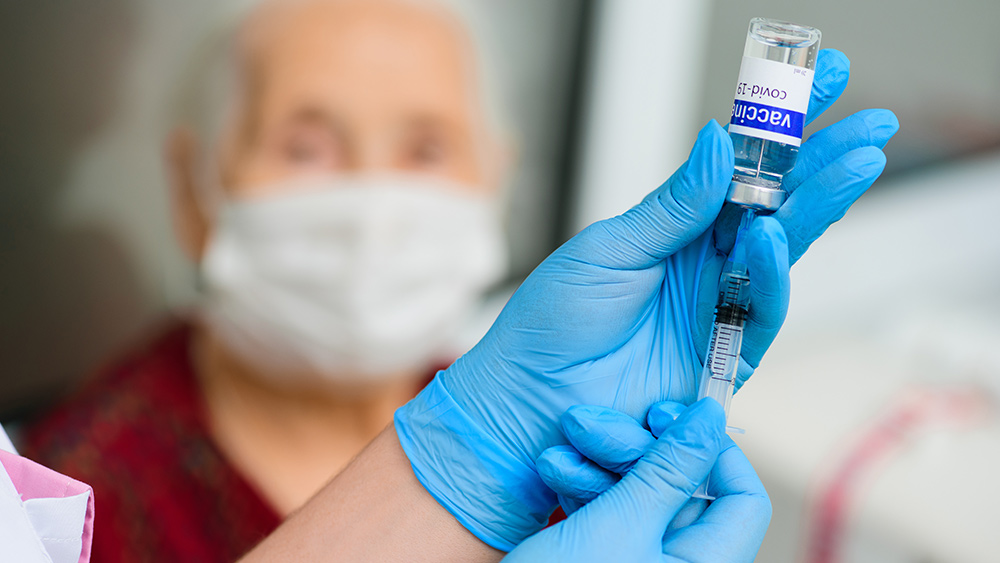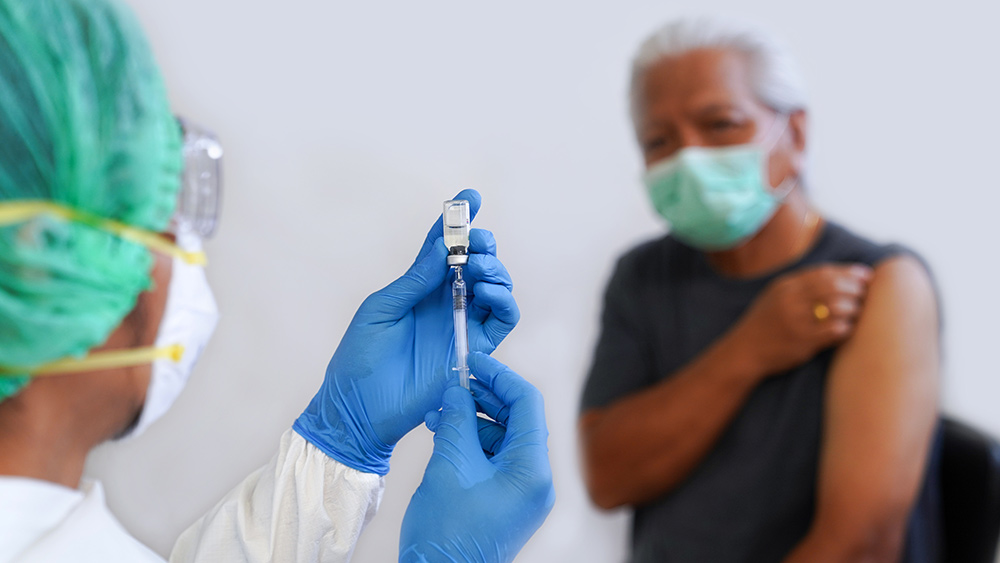FDA staffers undecided on Covid booster shots due to lack of data
10/16/2021 / By Ramon Tomey

Staff members at the Food and Drug Administration (FDA) have yet to take a stance on Wuhan coronavirus (COVID-19) booster shots. The staffers cite a lack of verified data for their refusal to decide, adding that the need for boosters would depend on how it reduces disease compared to the primary doses. It comes as both Pfizer and Moderna push to inject Americans with a third dose of their mRNA vaccine.
FDA staff members put forward their arguments in a 23-page document from Sept. 15. It served as a brief for the regulator’s Vaccines and Related Biological Products Advisory Committee (VRBPAC) meeting on Sept. 17. The committee would tackle Pfizer’s request to apply for a third booster dose of its Comirnaty vaccine in individuals 16 years old and up.
According to the staffers, they have avoided taking a stance on booster shots as all the available data regarding them are not yet independently verified. They note that some observational studies show Comirnaty’s diminished effectiveness over time or against the B16172 delta variant, but some do not. “There are many potentially relevant studies, but FDA has not independently reviewed or verified the underlying data or their conclusions,” the staff members write.
Interestingly, the staffers mentioned that data from Israel’s vaccination program would be included in the VRBPAC’s Sept. 17 meeting. Israel has used the Comirnaty vaccine on the majority of its population, alongside some doses from Moderna.
Israeli news website i24 News reports that Comirnaty’s effectiveness drops to 39 percent when faced with the more infectious B16172 delta strain. The Israeli Ministry of Health (MOH) based this finding on COVID-19 cases from June 20 to July 17, concurrent with the delta variant’s spread throughout the country.
The MOH’s July 2021 report also noted the decreasing effectiveness of the vaccine in safeguarding against transmission. Israelis who received Comirnaty in January have 16 percent effectiveness, while those in February have 44 percent effectiveness. Those who were injected with the vaccine in March have 67 percent protection, while those who received it in April retain 75 percent protection.
Many factors to consider before booster shots are approved
The FDA staff members state that there are several factors to be considered before booster doses are approved. These include the effectiveness of getting two primary Comirnaty doses over time and against circulating variants, the pandemic’s dynamics in the U.S., and the risk of the general population or certain sub-populations following booster dose injection.
The effectiveness and duration of booster doses in preventing COVID-19 outcomes in people who receive the primary doses of Comirnaty is also a factor for consideration. Most importantly, the benefit of a booster dose against any potential risk should also come into play.
The FDA staffers point out that it is currently unclear if booster doses increase the risk of cardiac inflammation in people who receive them. Myocarditis refers to heart muscle inflammation, while pericarditis refers to heart lining inflammation. Both of these conditions are associated with the mRNA vaccines from Pfizer and Moderna. (Related: FDA admits covid injections from Pfizer, Moderna cause heart inflammation.)
According to the Centers for Disease Control and Prevention (CDC), cardiac inflammation cases have seen a spike since April 2021. It adds that the conditions particularly occur in “male adolescents and young adults 16 years of age and older.” The CDC also notes that post-vaccination myocarditis and pericarditis cases often happen within several days after vaccination, with most reports following the second dose.
But based on earlier reports, Pfizer appears to be insinuating the need for booster shots. Executives from the New York-based pharmaceutical firm and its German partner BioNTech suggest that people may need to inject booster shots yearly to maintain immunity against COVID-19. (Related: Coronavirus booster shots: Boosting immunity or profits?)
Pfizer CEO Albert Bourla says people who have already been vaccinated will “likely” need to get booster shots every year. He mentions this during an April 2021 virtual event. “The [SARS-CoV-2] variants will play a key role. It is extremely important to suppress the pool of people that can be susceptible to the virus,” Bourla says.
The Pfizer executive adds: “There are vaccines like polio where one dose is enough, [and] there are vaccines like [the one for] flu that you need every year. The [COVID-19] virus looks more like the influenza virus than the polio virus.”
BioNTech Co-Founder and Chief Medical Officer Dr. Ozlem Tureci has the same sentiments as Bourla toward booster shots. She shared this with CNBC‘s Kelly Evans in April 2021, saying that people should expect COVID-19 booster doses every year. Tureci says that booster shots are warranted as vaccine-induced immunity wanes over time.
“We see indications for this [diminishing immunity] … [not only] in the induced, but also the natural immune response against SARS-CoV-2. We see this waning of immune responses also in people who were just infected, and therefore [it’s] also expected with the vaccines,” Tureci tells Evans.
Vaccines.news has more articles about COVID-19 booster shots.
Sources include:
Tagged Under: B16172 strain, Big Pharma, BioNTech, booster shots, breakthrough infections, coronavirus vaccine, covid-19 pandemic, Delta Variant, FDA, Food and Drug Administration, pandemic, Pfizer, vaccine wars, vaccine-induced immunity, vaccines, Wuhan coronavirus




















